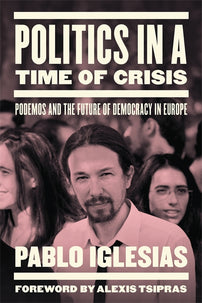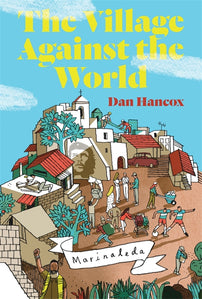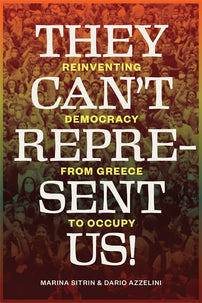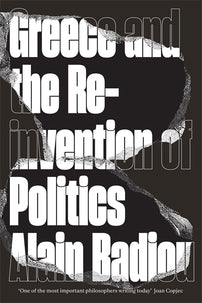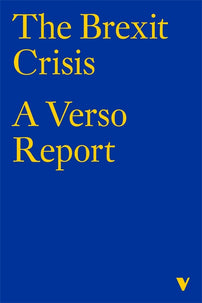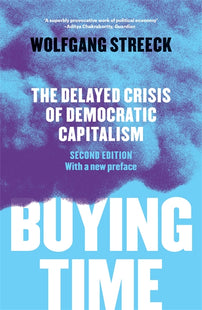Barrage to Catalonia
The 1 October referendum and its aftermath has exposed the extent of the democratic crisis in Spain — and Europe generally — rather than provided an answer to it.

The Catalan crisis made a fresh lurch forward last week, only to produce a new state of impasse. The Republic was declared on Friday; on Saturday vice-president Oriol Junqueras admitted that the new country had not been born "as strongly as we would have liked." By Sunday it was evident that no one believed that it existed at all. Some polls show Catalans embracing the independence cause. This is not because they believe Catalonia is already independent.
The flag of Spain hangs from Catalonia’s public buildings. The Catalan police obey the command of the Spanish state. Not only has Spanish prime minister Mariano Rajoy pulled recognition from the regional government, but it is unclear whether the Catalan parliament will meet of its own volition before the elections called by Madrid. EU tourists arriving in the Catalan capital need not worry about getting a visa for this non-member state.
After Rajoy disbanded the region’s autonomous government and called fresh elections for 21 December, the main Catalan nationalist parties declared that they will indeed participate. The anti-capitalist CUP will likely do the same, even though this regional contest is organised by the Spanish state. The current polls suggest the confirmation of the existing parliamentary arithmetic: a thin majority for independence, in a chamber with no constitutional right to declare for separation.
On 1 October the referendum, and the Spanish state’s efforts to prevent it taking place, allowed an upsurge of "direct action" independence activity. This was of a more confrontational pitch than the street rallies organised by civil society groups like ANC. That day Catalans occupied schools and community halls in order to ensure the vote could take place, in defiance of the central state’s Guardia Civil. The CUP and others formed local Committees to Defend the Referendum, later becoming Committees to Defend the Republic.
Yet this mobilisation has not progressed even among the half of Catalans who do want independence. One month on, the dominant mood is less a groundswell of activity than a wait for news to arrive from above. This owes in part to Carles Puigdemont’s own tactics of incremental advance and demands for negotiation. Such prudence is natural from figures whose politics do not speak the language of confrontation and struggle. Yet even those who urge a swifter, cleaner break outline little clear idea of how that might happen. What about the EU, the currency, international recognition?
Predictions are a perilous game and the situation remains fraught. Yet the intransigence of the Spanish authorities, the Catalan leaders’ desire for a safe landing within the European Union, and the fact that the international support instead lies with Spain, all point to a protracted crisis. The upsurge of democratic movements across the country over the last six years has everywhere but Catalonia ebbed away. And the faltering ancien régime today uses resistance to the independence movement as a means of galvanising Spaniards behind itself.
Poetry of the past
Of course, little about this situation is new. As several writers have noted, today’s farce draws deep on the history of past tragedy. When he proclaimed the Estat Català in October 1934 Lluís Companys went to jail. When he declared the Catalan Republic in October 2017 Carles Puigdemont went to Brussels. Seeking to cast their struggle in more heroic aspect, today’s protagonists cannot but raid the historic symbolism of Francoism and anti-fascism. Like those depicted in Eighteenth Brumaire, they speak the poetry of the past.
Perhaps the more important link, however, is to Marx’s Class Struggles in France, with its description of the divisions in the French bourgeoisie. The monarchist Right was divided between two pretenders to the throne, and two rival dynasties who each feared the other’s victory as much as the republicans. Ironically enough, the only satisfaction for both came from the establishment of a republic. The stability of the state was maintained and each royalist group could go on merrily fighting its own corner.
The supposed end goal was thus thrown overboard in order to allow the battle of allegiances to keep going. Both Spanish and Catalan leaders are betting on a similar strategy. Carles Puigdemont is for independence, but not the actual moment of rupture. The party that on Friday voted to proclaim the Republic declared on Monday that it will stand in a Spanish election on a pro-independence ticket. Taking a tough centralising stance, Mariano Rajoy dissolved Catalunya’s autonomous parliament entirely… but also called elections to this same body, for the earliest date that he legally could have done.
The logic within both leaderships is processisme. The fight over incremental adjustments in Catalan autonomy, rather than a decisive outcome either way, keeps the tug-of-war alive in permanence. "Processisme" is a basically pejorative description of Puigdemont’s gradualism, but also makes sense in defining the inverse position taken by Rajoy’s own party. The Partido Popular includes the heirs of Francoism and thus a strong centralising thrust. But within the rest of Spain it can also draw strength precisely from the ongoing mobilisation against independence movements.
The fight to lock down the periphery provides a legitimacy otherwise lacking in Spain’s institutions. This is a country where the two main parties’ vote fell from 84% to 51% in just seven years. Yet on the terrain of the fight with the independentists the Right makes headway and the Socialists can offer only a weaker echo of the government line. In Catalonia itself a pro-independence Left pushes Puigdemont to go harder, faster, to open the space for their vision of a socialist republic. But in the rest of Spain, and even within the Catalan franchise of Podemos, most of the Left would rather the issue disappeared.
The new cannot be born
The problem is that the national question is totally bound up with the Spanish constitution, and thus cannot but frame democratic politics generally. In this sense in particular we see that the crisis is not just a pointless clash of identities or rival nationalisms. Francoism passed peacefully in a hospital bed as conservatives organised the transition to a constitutional monarchy, the so-called "1978 regime." This importantly included a constitution that enshrined the unity of the state, as a principle standing above any kind of democratic decision or reform.
This is an injustice of which the Catalan independence movement rightly complains. The transgression of this principle could in theory open up a wider challenge to the constitutional order. Indeed, within Podemos (and not the other Spanish parties) there is recognition of the need to change this kind of rule, and to allow the Catalans to vote. Protests that Catalonia "is not Scotland" and should not be able to choose, or that Spain as a whole should vote, are however dominant across the whole of the Spanish media-political establishment.
Indeed, one of the ways that Catalonia is not Scotland is that the anti-independence parties only weakly lay claim to a Catalan interest or identity. Ciudadanos, the right-wing answer to Podemos across Spain and a more "modern," younger contender to the Partido Popular, was in fact originally founded as a party opposed to Catalan independence. The second party in Catalonia, it is strongest among the non-Catalan Spaniards who reside there (about a third of the population) as well as the most intransigent opponents of independence.
While Ciudadanos is clearly a party of the Right, the "social" aspects of the Catalan cause overlay the "national" one, rather than being clearly integrated together. The movement has always had a strong base of support in Catalonia’s relatively wealthier and more advanced bourgeoisie, which seeks to untie itself from Spain but without destabilisation or conflict. In this vision EU membership offers a kind of landing strip, and Brussels itself is seen as a potential mediator with Madrid. Puigdemont utterly expresses this outlook.
This is however deeply alienating to the Left in the rest of Spain. While it is easy to overstate the claim that Puigdemont’s party or the Esquerra Republicana frame the case for independence in terms of casting off the poorer regions of the country, their actions often play into this narrative. Puigdemont’s "suspended" independence declaration on 10 October itself protested the wasting of Catalans’ tax euros for Madrid’s benefit, and talk of maintaining a solidarity fund for southern Spain sounds unsatisfactorily vague.
With its 10 MPs holding the balance of power in the Generalitat, and an impressive influence on street mobilisation, CUP is doubtless a key actor in the current drama. At the institutional level it is much stronger than something like Scotland’s Radical Independence Campaign was in 2014, and Puigdemont is compelled to negotiate with its leaders. However, it enjoys little sympathy from the Spanish Left and has tense relations with Podemos. Indeed, if this latter party wanted an alliance with the Socialists after the penultimate elections, this was impossible precisely because the Socialists refused a deal with the Catalan independentists.
The lack of positive exit routes thus also owes to the political retreat of Pablo Iglesias’s party. The ambition of overturning Spain’s old institutions, and indeed the initial libertarian thrust inherited from the 15-M square-occupation movement, has given way to the creation of a party set on coalition with the Socialists. Equally, the ex-Communist element of the party is strongly hostile to Catalan independence. When the Catalan branch of Podemos (Podem) declared its opposition to participation in the 21 December elections, Iglesias dismissed its leader Albano Fachin; he moreover described as "politically outside of Podemos" the Anticapitalista current’s declaration recognising the Catalan referendum result.
At the same time that the general prospect of overhauling the Spanish state has weakened, independence is an increasingly obvious "life raft" for much of the Left in Catalonia. A new republic could, in theory, be anything. Yet this hope of rupture achieves no echo in the rest of Spain, and even appears as a further kick in the stomach to a movement already on the retreat. Even Barcelona mayor Ada Colau, or "sovereigntist" but non-independentist forces like Podem, are marginalised by their non-position on the key question of the day: whether to put the referendum result into effect, or thwart it.
Referendums are lame
The 21 December election promises yet another ambiguous result and a confusion among opposing mandates. The 1 October referendum result (90% for independence on a 43% turnout; 2 million votes, amidst widespread repression) could easily be "overridden," at least in Madrid’s eyes, by a poll in which the number of anti-independence voters is actually lower. Even a restored parliamentary majority for the pro-indy parties would provide no constitutional basis for a split, or even a fresh referendum. The electoral consultation is just a crude act of political gamesmanship, which Puigdemont’s party has itself now signed up to in the effort to buy a few weeks of space.
Mere voting is not in any case translating into government action. It was the repression of the referendum rather than the actual electoral turnout that really gave it political force within Catalonia. The Spanish police action crystallised the sense of injustice and opened into a mobilisation that worked around the Spanish legal channels. Fearful of the leap into the abyss that the 2 million had effectively mandated, Puigdemont’s "suspension" of the result however threw the ball back into Madrid’s court and demobilised a grassroots pressure reliant on his further action. There was simply no Catalan force able to assert control over the state apparatus or to form a new one.
There are elements of the Catalan independence movement that combine social objectives and national ones, but taken as a whole this is not the stuff of "national liberation" movements. The task for such movements throughout history has been not simply to break one country off from another, but rather to call the nation itself into existence. History is replete with the examples of minority action that galvanises the divided, the silenced, the atomised into a sense of community, that made the national ideal a reality.
Historically this has centrally relied on the bid to impose from above some sort of strategy for how the nation will become independent and what political form this will take. This attempt to cohere the atomised into a collective endeavour however stands at odds with the logic of referendums, which is to create an empty cipher (Yes/No) onto which individual voters can then project whatever they like. The referendum is all the less coherent when, as in the Catalan case, there is no guarantee that any variant of the result will be put into effect.
The 1 October referendum and its aftermath has exposed the extent of the democratic crisis rather than provided an answer to it. A section of the people voted, and the leadership did nothing with it. The series of electoral exercises throw the problem back to the atomised mass so that they can again "have their say," only to lead to fresh impasse when it comes to crafting the "people’s will" into an actual political solution. As with Tsipras’s referendum in July 2015, the people were allowed to vent, before the basic power relation immediately reasserted itself. The vote is no more binding than the yearly "family day out" demonstration on the Catalan national day.
In this sense, too, the Catalan crisis is indicative of the general collapse of democratic politics in Europe. The last two Spanish general elections produced parliamentary gridlock. The last Italian election did the same, and so will the next. Historic party bases are dying, in favour of more confused webs of identity. Yet this takes place in a fragmented and superficial fashion, no longer based in class blocs or even the politics of national unity. The temporary coalitions of referendums are an agent of this process, helping to destroy the old collective forms while replacing them with nothing.
In this context the constitutions written in the twentieth century can impose stasis-through-mess. They can provide a crisis-management regime, and an answer to the legitimacy of the street. This is perhaps enough for an individual politician, seeking to prop himself up throughout a five-year-term or two. But this also feeds a grinding decline of democratic legitimacy, the loss of the sense that votes leads to action and decisions are being made to shape the future. In Greece, in Italy, in Spain and Catalonia that idea lies in ruins. The people are summoned to vote all the more often, precisely so that nothing will change.
[book-strip index="1" style="display"]
